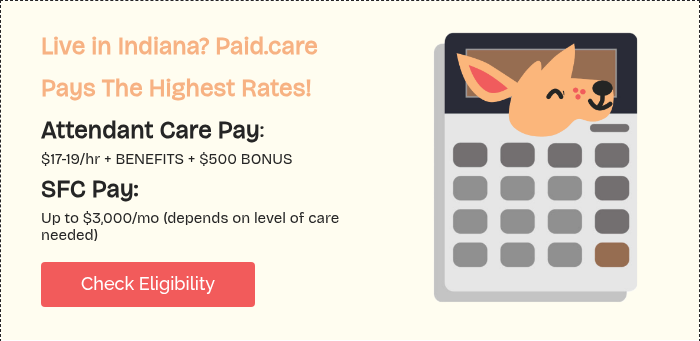How Much FreedomCare Pays Family Caregivers-and How to Qualify

Overview: What Family Caregivers Can Expect to Earn
Family caregivers working through Medicaid consumer-directed programs with FreedomCare are typically paid an hourly wage that is set by state Medicaid policies, local program rules, and market conditions. In documented examples, FreedomCare publicly cites hourly caregiver pay such as
$16.00 per hour in Arizona
and
$16 per hour in Nevada
, with broader caregiver-pay discussions often noting ranges around the mid-teens per hour depending on state, program, and locality
[1]
[2]
[3]
. Programs vary by state and may adjust rates over time, so your actual pay could differ based on eligibility, assessment, and the Medicaid waiver or plan that funds the care
[2]
.

Source: freedomcare.com
How Pay Works with FreedomCare
FreedomCare participates as a fiscal intermediary or provider within Medicaid consumer-directed/home- and community-based services (HCBS) programs that allow the person receiving care to select a trusted caregiver, including certain family members, who then get paid for providing approved tasks. FreedomCare highlights fast or even same-day pay features through its systems, but the core hourly rate is typically governed by state Medicaid rules and contracted program rates [4] . For instance, FreedomCare’s Arizona page reports $16.00 per hour for eligible family caregivers, coupled with same-day pay after shifts; Nevada content similarly cites a regulated minimum of $16 per hour under applicable waivers [1] [2] .
It is important to understand that these figures are examples tied to specific states and timeframes. Actual pay depends on: (1) program enrollment and eligibility; (2) the assessment of care needs; (3) local wage determinations; and (4) any changes to Medicaid program rates or rules in your state [2] .
State-by-State Variations and Examples
Because Medicaid is administered at the state level, caregiver pay and rules differ by location. FreedomCare’s state content provides snapshots that illustrate this variation. For example:
-
Arizona (ALTCS)
: FreedomCare states family caregivers can be paid
$16.00/hour
, with same-day pay options once shifts are submitted, provided the care recipient meets Arizona Long Term Care System (ALTCS) medical and financial criteria and enrolls appropriately [1] . -
Nevada (HCBS Waivers)
: FreedomCare describes a
regulated minimum wage of $16/hour
for family caregivers under certain Medicaid waivers, while noting that specific rates and eligibility can vary by program, location, and market factors [2] . - Missouri (CDS Program) : FreedomCare notes Missouri’s consumer-directed model allows patients to choose and pay a family caregiver (spouses excluded under state rules), with wages funded through Medicaid and paid via a fiscal intermediary; weekly on-time pay is emphasized. Exact hourly rates depend on state/CDS program terms and contracts [5] .
Beyond these examples, general guides point out that caregiver pay under consumer-directed Medicaid models is often in the mid-teens per hour, influenced by local policy and funding-though always verify current rates with the administering program where you live [3] .
Eligibility Basics: Who Qualifies to Get Paid
To be paid to care for a family member through FreedomCare, the person receiving care must typically qualify for a Medicaid HCBS or consumer-directed program in their state. Requirements often include: residency, medical need (assessed need for help with activities of daily living), and financial eligibility for state Medicaid or a relevant waiver. For example, Arizona’s ALTCS requires the individual to meet medical and financial criteria and either self-direct care or appoint someone to help direct it [1] . Missouri’s CDS program similarly requires Medicaid eligibility and use of a fiscal intermediary for payments [5] .
Many states allow certain relatives to be hired as caregivers; some restrict spouses or legal guardians, depending on the program. Always review state-specific rules before planning around compensation [5] .
Step-by-Step: How to Enroll and Start Getting Paid
Follow these steps to explore whether you can be paid to care for a family member through FreedomCare:
- Confirm Medicaid Pathway : Determine whether your loved one is eligible for your state’s Medicaid long-term services and supports. If you are unsure where to start, you can contact your state Medicaid office and ask about consumer-directed or self-directed personal assistance services and which fiscal intermediaries operate in your area. FreedomCare also provides state pages describing how its program works locally [4] .
- Schedule an Eligibility Screening : Programs will assess the care recipient’s medical needs and financial eligibility. For Arizona, eligibility references ALTCS requirements; in Missouri, the CDS program requires Medicaid and an assessment to authorize hours [1] [5] .
- Select the Caregiver : If permitted, the care recipient designates a family member or friend as caregiver. Note any restrictions (e.g., spousal exclusions in some states) and complete program-specific onboarding paperwork with the fiscal intermediary (such as timesheets, training modules, and background checks when applicable) [5] .
- Authorize and Track Hours : The state or managed care plan authorizes a set number of weekly hours based on the assessment. Track and submit hours using the program’s required systems or FreedomCare’s tools, which emphasize timely and reliable payment processing [4] .
- Get Paid : Payment follows the authorized hourly rate for your program. FreedomCare highlights accelerated or same-day pay features in some geographies, but your hourly rate is determined by program rules rather than app features [1] [4] .
What Influences Your Hourly Rate
Your pay rate is not arbitrary. Key drivers include:
- Program Guidelines : Each waiver or consumer-directed program sets limits and rules for caregiver pay. Nevada materials note maximums and guidelines that can differ by program, requiring local verification [2] .
- Local Wage Rules : Some programs use regional wage schedules or zip code-based rates reflecting living costs and labor markets, as noted in Nevada guidance [2] .
- Authorized Hours : The care plan determines weekly hours. Even at a stable hourly rate, your total pay depends on approved hours tied to assessed needs [1] .
- Market Demand : Where caregiver shortages exist, some programs adopt rates to attract workforce participation; Nevada content references market demand as a factor influencing rates within regulated structures [2] .
Realistic Expectations and Examples
Consider two scenarios to set expectations:
Example A (Arizona) : A daughter is authorized for 25 hours per week at $16.00/hour via ALTCS through FreedomCare. If she submits timesheets promptly and uses available fast-pay features, she could receive about $400/week before taxes, dependent on continued authorization and hours worked [1] [4] .

Source: freedomcare.com
Example B (Nevada) : A nephew provides care under a Nevada Medicaid waiver with a regulated $16/hour minimum. The plan authorizes 18 hours weekly. Weekly pay would be about $288 before taxes, with potential rate or hour adjustments if reassessed or if program rules change [2] .
Common Challenges-and How to Navigate Them
Challenge 1: Eligibility Complexity . Medicaid financial and clinical criteria can be intricate. Solution: Ask your state Medicaid office about consumer-directed services and request a care needs assessment. FreedomCare’s state pages outline local expectations and can help you prepare necessary documents [4] [1] .
Challenge 2: Hour Authorization Lower Than Expected . Assessments may approve fewer hours than you feel are needed. Solution: Keep a detailed daily log of care tasks and time spent; during reassessment, present documentation to support increased hours based on functional needs [1] .
Challenge 3: Understanding Pay Schedules . Some caregivers expect instant pay everywhere. Solution: While FreedomCare promotes fast pay features, your hourly rate is driven by the state program, and timing can depend on submission, approval processes, and local systems. Clarify timelines during onboarding [4] .
Challenge 4: Spousal Restrictions . Some states do not allow spouses to be paid caregivers. Solution: Ask about specific rules in your state; Missouri content explicitly notes spousal exclusions in its program description [5] .
Alternatives and Complementary Supports
If Medicaid consumer-directed care is not an option right now, consider these alternatives while you work toward eligibility:
- Area Agencies on Aging (AAA) : Contact your local AAA to ask about caregiver support, respite, and guidance on Medicaid applications. Use your state’s official aging services portal or call your county health and human services office for a referral.
- Managed Care Plans : If your loved one is enrolled in a Medicaid managed care plan, ask member services about consumer-directed options and caregiver pay pathways.
- Short-Term Paid Leave : Some states offer paid family and medical leave. While separate from Medicaid caregiving pay, it can provide temporary income during intensive care periods. Verify your state’s current policy through its official labor or family leave agency.
- General Guidance on Pay Ranges : Independent overviews note mid-teens hourly ranges are common under paid family caregiver options, but always confirm the current, local rate through your administering program [3] .
Practical Next Steps (No-Guessing, Actionable)
Because rates and eligibility are program-specific and subject to change, use this approach:
- Call your state Medicaid office and ask: “Which consumer-directed or self-directed home care programs allow family caregivers to be paid, and which fiscal intermediaries operate here?”
- Ask the Medicaid office or your managed care plan for an assessment appointment to determine medical eligibility and hours.
- If FreedomCare operates in your state, request their enrollment steps and current caregiver pay rate for your specific program and county. Their main site provides state program pages and contact options [4] .
- Prepare documentation: IDs, proof of residency, Medicaid numbers (or application), physician information, and a care task list that reflects daily needs.
- Clarify caregiver eligibility, including whether your relationship (e.g., spouse, parent, adult child) is permitted under your state’s rules [5] .
Key Takeaways
FreedomCare-supported caregiver pay is primarily set by state Medicaid and program rules. Verified examples show hourly pay like $16/hour in Arizona and Nevada, with fast pay features highlighted after shift submission where available. Your exact rate, hours, and start date depend on local eligibility, assessments, and the specific program that funds the care. Always verify current details with your state’s administering agency and FreedomCare’s local team before making financial plans [1] [2] [4] .
References
[1] FreedomCare (2025). How Much Do Family Members Get Paid for Caregiving in Arizona? [2] FreedomCare (2024). How to Get Paid as a Family Caregiver in Nevada. [3] Helpful (2023). Getting Paid as a Family Caregiver – General Guide. [4] FreedomCare (2024). FreedomCare: Hire a family member or friend to care for you. [5] FreedomCare (2024). Get Home Care in Kansas City MO – CDS Medicaid Caregiver.






